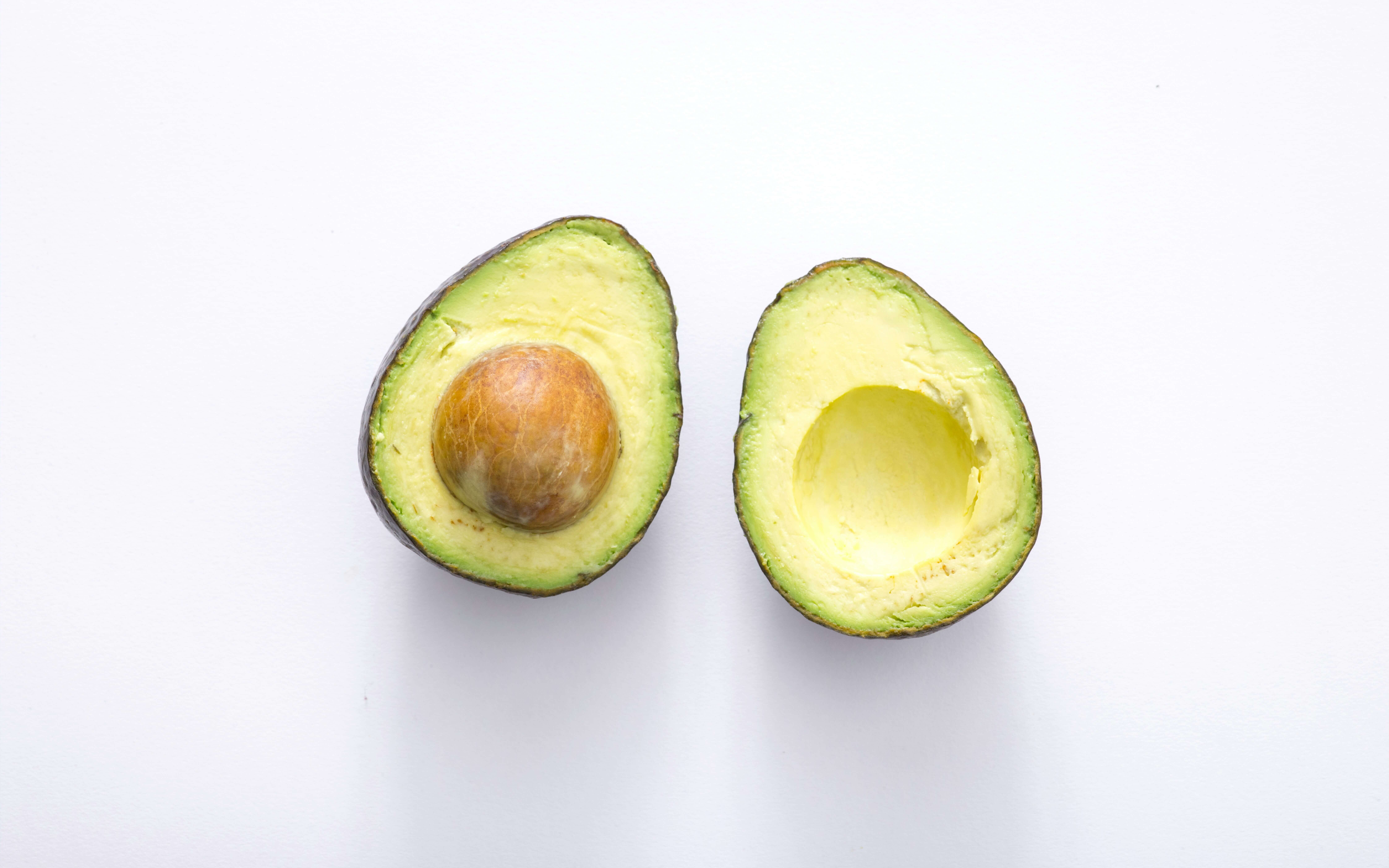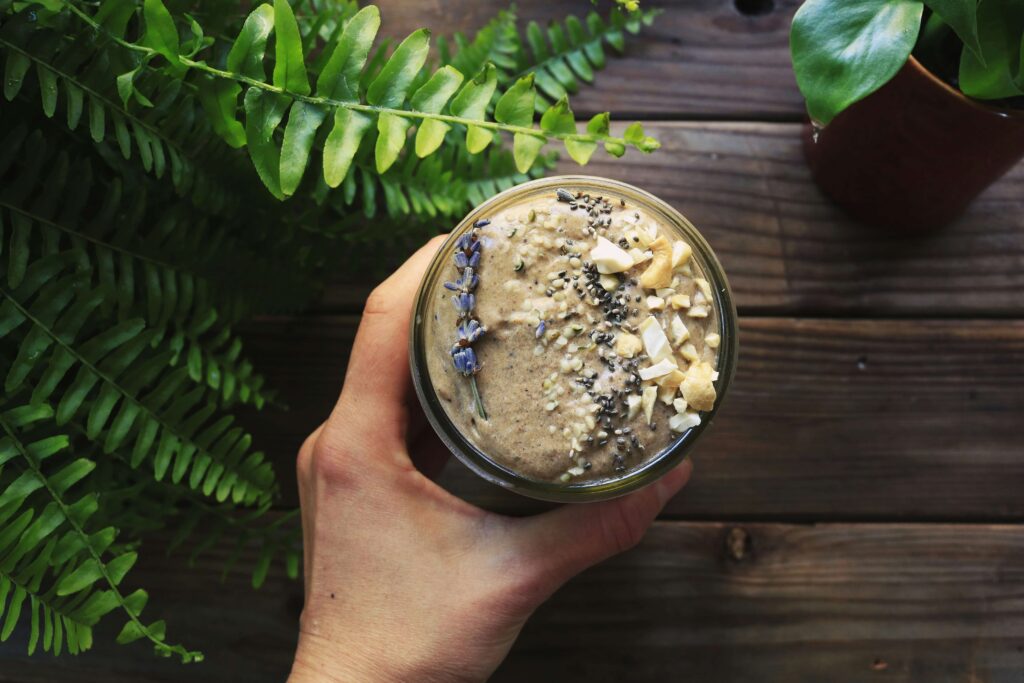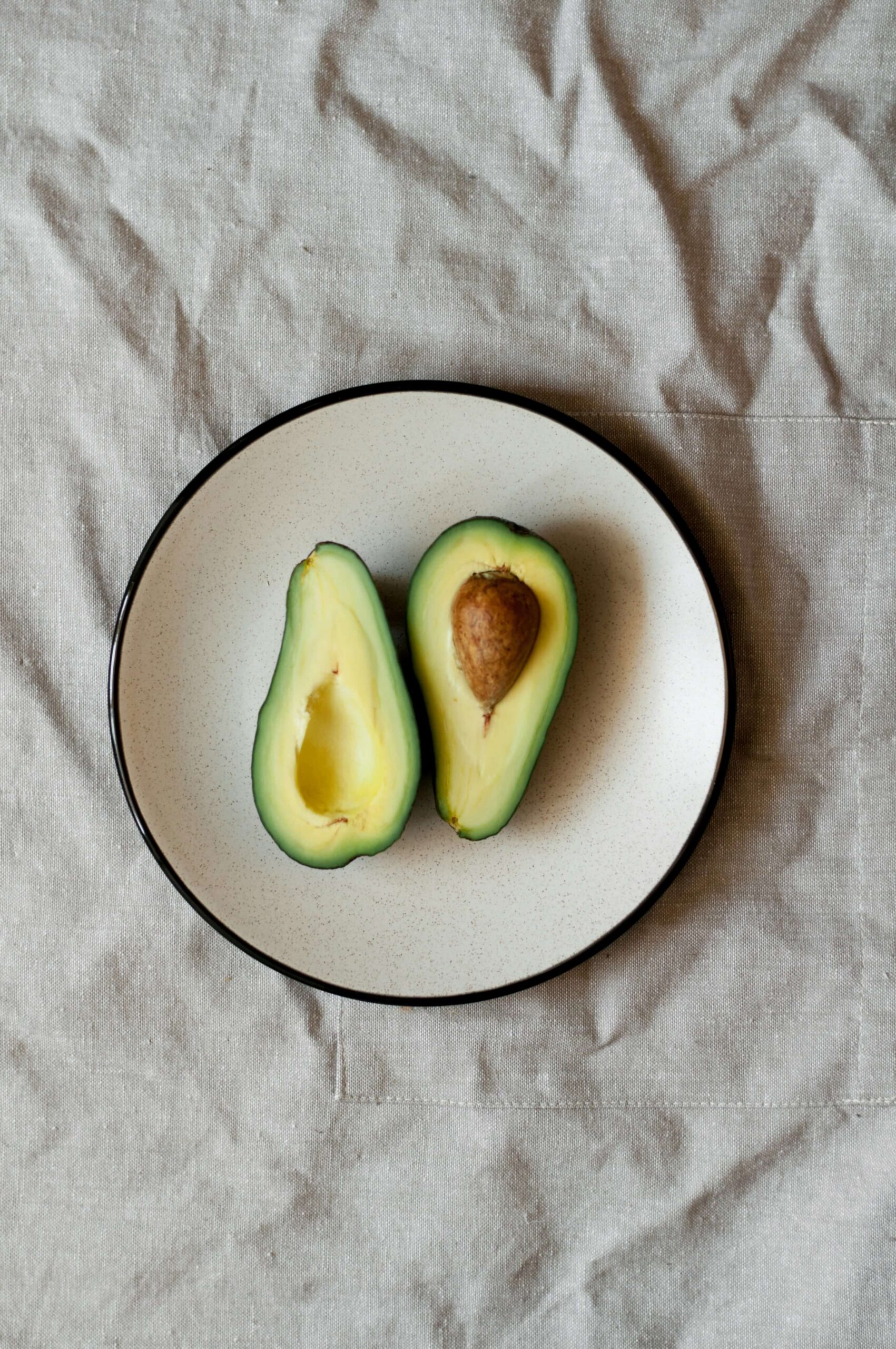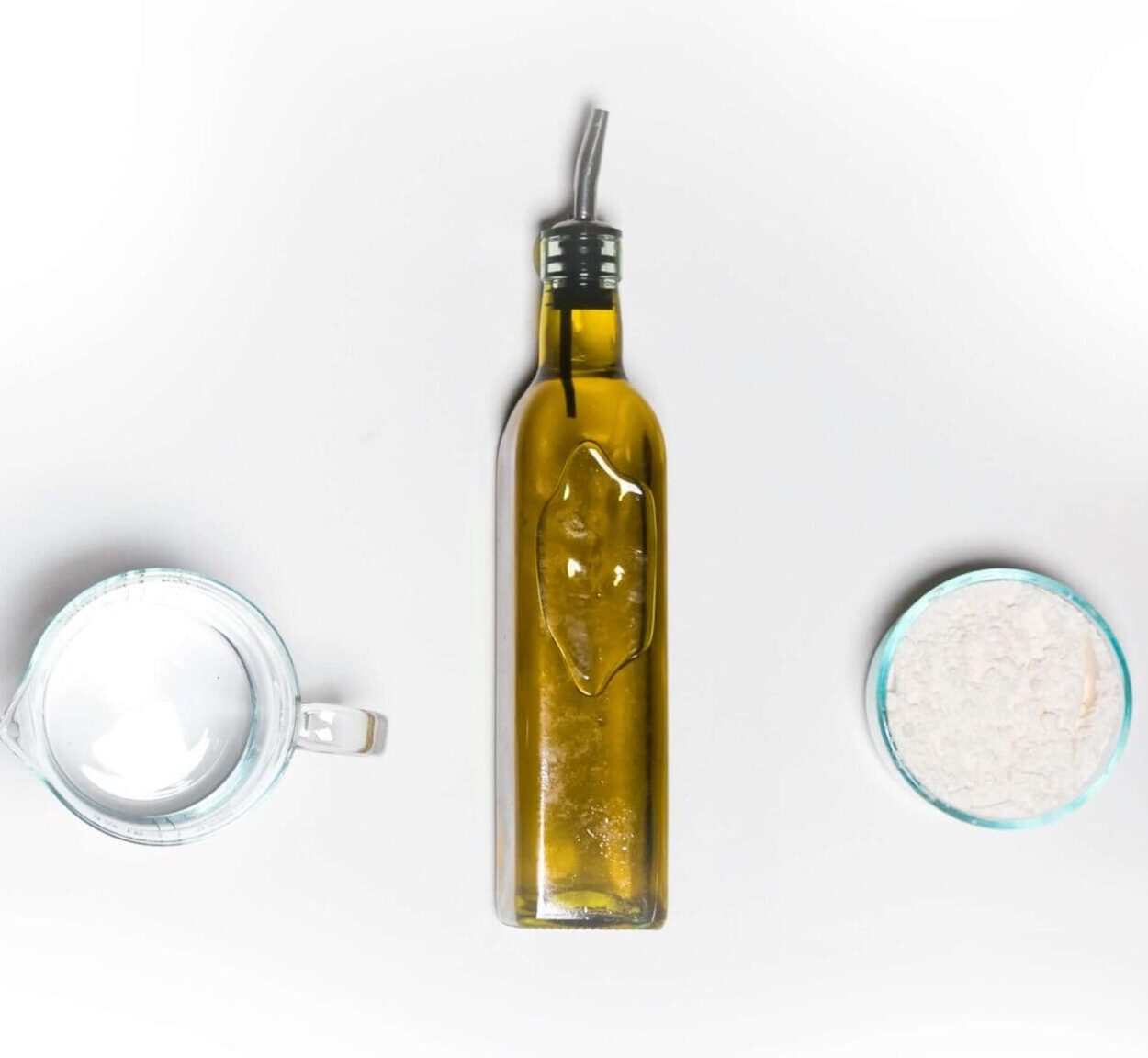Introduction
Hello friends! The weather is warming up! I love swapping my grocery staples with spring seasonal produce. Currently, we are in the prime time for a very popular little fruit: that’s right folks – it’s time for avocados!
Not only are avocados great to add a creamy texture and bright color to a dish, but they are also very nutritious! In fact, they may have compounds that can play a role in cancer prevention and overall health. Avocados count towards a serving of plants. Remember, for cancer prevention, we want to fill half the plate with plants.
Background of Avocados

Avocados are from Central America. The earliest evidence of avocado consumption dates back to around 10,000 BCE. Back then, the fruit was cultivated by indigenous populations such as the Aztecs and the Mayans.
Today, avocados are grown in various tropical and subtropical regions around the world. Major avocado-producing countries include Mexico, the United States (in states like California and Florida), Chile, Peru, the Dominican Republic, and Colombia. The specific variety of avocado and its characteristics may vary depending on the region where it is grown.
Over the past 10 years, avocados have risen to “superfood” status. Due to their health benefits, role in cooking, and overall trendy appearance, they became a staple in many dishes. They are often featured in insta-worthy pictures and the iconic millennial morning toast.
There are many health claims about avocados:
- Weight loss
- Healthy aging
- Improved blood pressure,
- Improved gut health
- Heart health
- Managing blood sugar
- Reducing cancer risk.
Lets take a closer look at the role avocados have with cancer risk.
4 Cancer-Fighting Properties in Avocados
Fiber
Avocados are high in dietary fiber, including both soluble and insoluble fiber. In fact, one medium avocado will provide 10 grams of dietary fiber – that’s about a 1/3 of the amount you need in an entire day!
Eating enough fiber helps to lower your risk of certain types of cancer, especially colon cancer. Fiber helps you have regular bowel movements. Overall, this limits the exposure of your colon to carcinogens. Adding avocados can help you meet your daily fiber target!
Vitamins and Minerals in Avocados
These fruits are great sources of vitamins and minerals, including vitamins C, E, K, Riboflavin (B2), Niacin (B3), pantothenic acid (B5), pyridoxine (B6), folate, potassium, and copper.
Several of these nutrients have immune boosting and anti-inflammatory action, which could play a role in reducing cancer risk.
Unfortunately, many Americans’ diets are lacking in these important nutrients. In fact, the United States Department of Health and Human Services lists potassium as a “nutrient of public health concern”. Adding avocados can help you get these important nutrients.
Antioxidants
Avocados contain various antioxidants, including carotenoids (such as lutein and zeaxanthin), vitamin E, and glutathione. These antioxidants help neutralize harmful free radicals in the body. This can reduce cell damage, potentially lowering the risk of cancer growth.
Glutathione, especially, has been studied for its potential role in lowering risk for larynx, pharynx, and oral cancers.
Some studies have even associated higher circulating carotenoid levels with a lower risk of bladder and breast cancer.
This means that eating more fruits and vegetables may help lower the risk of certain cancers! Yay for more plant foods!
Monounsaturated Fats
Avocados are also a good source of healthy fats like monounsaturated fats. These healthy fats have been linked to a reduced risk of endometrial cancer in mice models. Also, the healthy fats in avocados may help improve your heart health by lowering the bad cholesterol.
Chocolate Avocado Smoothie

You can do so much more with avocados than simply smearing them on toast. Don’t get me wrong, I love the occasional basic breakfast, but adding avocados to smoothies gives it a wonderful creamy texture.
This smoothie is full of healthy fats (including avocado) that will keep you full and satiated for hours! The fiber will also help you have regular bowel movements, keeping both you and your gut happy! Feel free to make this recipe your own by using other fruits, nut butters, and other mix-ins! Enjoy!
Ingredients
- 1 ½ cup 2% milk
- 1 tbsp almond butter
- 1 small banana
- ¼ avocado
- 1 cup spinach
- 2 tbsp cocoa powder
- 1 tbsp Honey (optional)
- ½ cup greek yogurt
Directions
- Place all your ingredients in your blender and blend until smooth.
- Pour into a glass and enjoy!
Closing
It’s fascinating to learn about how the different parts of food can work together in the body to reduce risk for diseases and keep us healthy. Remember: one food alone is not going to make or break your health goals. Avocados cannot single-handedly cause or prevent cancer. If you choose to include them, make sure to do so in the context of an overall healthy eating pattern and lifestyle. This approach will allow you to reap the most cancer prevention benefits. Enjoy avocado season!
Have you fallen victim to the overwhelming misinformation on the internet? You are not the only one! Those who are trying to sell the latest diet, supplement, cleanse, etc. love to prey on those dealing with cancer by capitalizing on their fears. It’s ridiculous and honestly disturbing. The truth is, there is no “food hack” to beating cancer. Nutrition plays a big role in cancer prevention and supporting your body during treatment, but one food or diet alone is not enough to treat cancer. Learn how to SUPPORT your body during and after treatment using lifestyle adjustments and learn how to apply nutrition principles and fall in love with food again using my 50+ whole food recipes. Check out my latest book: The F*ck Cancer Cookbook – and get back to being empowered!
References
- Britannica, T. Editors of Encyclopaedia (2024, March 30). avocado. Encyclopedia Britannica. https://www.britannica.com/plant/avocado
- Food Sources of Select Nutrients. Dietary Guidelines for Americans. Accessed April 7, 2024. https://www.dietaryguidelines.gov/resources/2020-2025-dietary-guidelines-online-materials/food-sources-select-nutrients
- Wu S, Liu Y, Michalek JE, Mesa RA, Parma DL, Rodriguez R, et al. Carotenoid Intake and Circulating Carotenoids Are Inversely Associated with the Risk of Bladder Cancer: A Dose-Response Meta-analysis. Adv Nutr. 2020;11(3):630–643. doi: 10.1093/advances/nmz120
- Dreher ML, Davenport AJ. Hass avocado composition and potential health effects. Crit Rev Food Sci Nutr. 2013;53(7):738-50. doi: 10.1080/10408398.2011.556759. PMID: 23638933; PMCID: PMC3664913.
- Eliassen AH, Hendrickson SJ, Brinton LA, Buring JE, Campos H, Dai Q, et al. Circulating Carotenoids and Risk of Breast Cancer: Pooled Analysis of Eight Prospective Studies. JNCI J Natl Cancer Inst. 2012;104(24):1905–1916. doi: 10.1093/jnci/djs461
This blog is not intended as medical nutrition therapy, medical advice, or diagnosis and should in no way replace consultation or recommendation from your medical professional.



